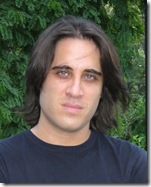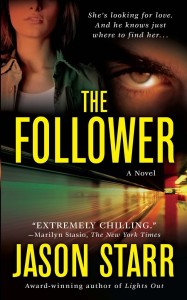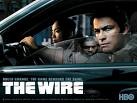Category Archives: Dexter
Bad Boys & Naughty Girls – You Gotta Love ‘Em
The popularity of the anti-hero (man or woman) continues to be a strong trend in literature and in pop culture. With their moral complexity, they seem more realistic because of their human frailties. They are far from perfect. They tend to question authority and they definitely make their own rules, allowing us all to step into their world and vicariously imagine how empowering that might feel.
Some classic literary anti-heroes that are personal favorites of mine are:
Holden Caulfield in the Catcher in the Rye by J. D. Salinger, Roland Deschain in Stephen King’s Dark Tower series, Lestat in Anne Rice’s Interview with a Vampire, Hannibal Lecter (as Clarice’s white knight) in Thomas Harris’s Silence of the Lambs, Heathcliff in Emily Bronte’s Wuthering Heights, and even Scarlett O’Hara in Margaret Mitchell’s Gone with the Wind.
And here is a short list of noteworthy anti-heroes from the small screen:
On the TV show, HOUSE, Dr. Greg House is addicted to pain meds, a by-product of his damaged leg. He’s also obnoxious, abrasive, brutally honest, and definitely politically incorrect in how he deals with patients, but he’s damned good at what he does—saving lives. His public face appears to be a detached man who ridicules any real human emotion, yet he’s fascinated by true emotion too. It’s as if he’s an outsider looking in, an observer of the whole human experience. We never quite know if he really cares about his patients or is merely obsessed with being right as he puzzles out the reasons for the illnesses.
On the cable show, DEXTER, the strange anti-hero, Dexter Morgan, is a serial killer with a goal. He hunts serial killers and satisfies his blood lust by killing them. He’s got peculiar values and loyalties with a dark sense of humor. And he’s absolutely fascinating to watch.
On the new show HUMAN TARGET, Christopher Chance has a dark history. He’s a do-it-all anti-hero, former assassin turned bodyguard, who is a security expert and a protector for hire. He works with an unusual and diverse team. His business partner, Winston, is a straight and narrow, good guy while his dark friend, Guerrero, is a man who isn’t burdened by ethics or morality. Each of these men has very different feelings about what it takes to get the job done, but they’ve found common ground to work together. And their differences make for a fun character study. (My favorite character is Guerrero and I wish his character had more airtime.)
I’ve put together a list of writing tips that can add depth to your villain or make your anti-hero/heroine more sympathetic, but let me know if you have other tried and true methods. I’d love to hear them.
1.) Cut the reader some slack by clueing them in early. Your Anti-Hero/Heroine has a very good reason for being the way they are.
2.) Make them human. Give them a code to live by and/or loyalties the reader can understand and empathize with.
3.) Make them sympathetic by giving them a pet or a soft spot for a child. Write the darkest character and match them up with something soft and you’ve got a winning combination that a reader may find endearing.
4.) Show the admiration or respect others have for them.
5.) Give your villain and anti-hero similar motivations for doing what they do. Maybe both of them are trying to protect their family, even though they’re on opposing sides.
6.) Give your villain or anti-hero a shot at redemption. What choice would they make?
7.) Understand your villain’s backstory. It’s just as important as your protagonist’s.
8.) Pepper in a backstory that makes your anti-hero vulnerable.
9.) Give them a weakness. Force them to battle with their deepest fears.
10.) Have them see life through personal experiences that we can only imagine but they have lived through. They must be much more vulnerable than they are cynical to deserve the kind of significant other that it takes to open them up to love.
11.) Make them real. To be real, they must have honest emotions.
If you have favorite anti-heroes you’d love to share, I would love to hear from you. And tell us why you like them so much. I’d also like to know if you have any other writer tips to share on creating anti-heroes. Creating them can be a challenge worth taking. Editors sure seem to love them too.
ADMIT IT, YOU WATCH TELEVISION
 The Kill Zone is thrilled to welcome author Jason Starr as our guest blogger today. Jason’s book THE FOLLOWER was just re-released as a mass market paperback, and I can attest that it’s a dark, funny story that absolutely everyone should read. Bret Easton Ellis said, “The Follower is Jason Starr’s masterpiece,” and The New York Times described it as “Extremely chilling.” Think of it as a dating “how not-to.”
The Kill Zone is thrilled to welcome author Jason Starr as our guest blogger today. Jason’s book THE FOLLOWER was just re-released as a mass market paperback, and I can attest that it’s a dark, funny story that absolutely everyone should read. Bret Easton Ellis said, “The Follower is Jason Starr’s masterpiece,” and The New York Times described it as “Extremely chilling.” Think of it as a dating “how not-to.”
Without further ado…
Our TV broke last week. It was an LCD set—an old model—and when the inverters go, that’s it, the set’s dead. We have a new TV now with one of the best home music systems, but for several days we were forced to go TV-less. I know, the horror, the horror, right?
Actually, going without a TV was a bit of a shock. My family and I live in a fairly small Manhattan apartment and the sudden quiet was startling. Sudden ly I felt like I was back in the 1800’s, living in the Little House on the Prairie, and I had to entertain the family at night with my fiddle. I was able to read more, which was great, but it didn’t really fill the void.
ly I felt like I was back in the 1800’s, living in the Little House on the Prairie, and I had to entertain the family at night with my fiddle. I was able to read more, which was great, but it didn’t really fill the void.
I mainly watch sports and movies on TV, and cable series such as Entourage, Dexter, and Californication. Not so-long ago there was a big stigma among people, especially writers, about admitting to television watching at all. At parties, if the subject of television came up a writer would say proudly, “I’m too busy to watch TV.” Some went further and claimed, “I don’t watch TV at all.” Others—the really busy people—would boast, “I got rid of my TV.”
I always suspected that people who claimed they didn’t watch TV were closet TV- aholics. They probably sat with their asses glued to their couches four hours a night, watching the entire lineup of the dumbest sitcoms.
But something happened, I think around the time The Sopranos got popular. Suddenly it became socially acceptable to admit to TV watching, and a big stigma to not watch TV. If you didn’t watch The Sopranos, you were considered to be some kind of freak, and if you didn’t watch the finale–fuggedaboutit. I think there’s no doubt that the quality of television in general has improved greatly over the years, but there has been a change in our attitudes toward TV as well.
Now being TV-literate, especially cable TV-literate, is much more socially acceptable, even vital. I actually feel  sorry for the writers who don’t watch TV because at parties and mystery conferences they’ll inevitably hear: “What, you haven’t seen every episode of The Wire? Oh my God, what’s wrong with you?…“What, you don’t watch Dexter? Really? You have no idea what you’re missing.”….“What, you’ve never seen Californication? You’re kidding me? Really?”….“You’ve never heard of The Shield?”
sorry for the writers who don’t watch TV because at parties and mystery conferences they’ll inevitably hear: “What, you haven’t seen every episode of The Wire? Oh my God, what’s wrong with you?…“What, you don’t watch Dexter? Really? You have no idea what you’re missing.”….“What, you’ve never seen Californication? You’re kidding me? Really?”….“You’ve never heard of The Shield?”
I’ve seen some television-deprived writers embellish their TV watching, smiling vaguely and nodding a lot, not wanting to feel left out when people start discussing the latest shows. That’s right, writers have now come full circle and they actually exaggerate the amount of television they watch.
So I’m wondering, how much television do you watch? And do you find that lately it’s more socially acceptable to admit it?
JASON STARR is the Barry and Anthony Award-winning nine crime novels which have been published in ten languages. His latest thriller from St. Martin’s Press, THE FOLLOWER, is on-sale this week in a new mass market paperback edition. Visit www.jasonstarr.com and sign up for Jason Starr’s newsletter for a chance to win a 50-dollar Amazon gift certificate, and other exciting prizes. Newsletter subscribers will also be eligible to win free advance copies of Jason Starr’s next thriller PANIC ATTACK, which will be on-sale in August, 2009.


